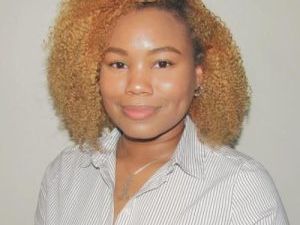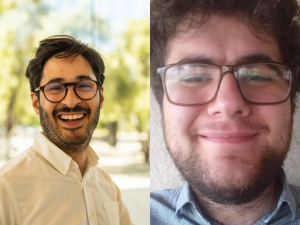Izzy Bouklas selected for von der Heyden Global Fellowship and Summer Research Fellowship

Duke University PhD student Isabella Bouklas is driven by a commitment to uncover the structures shaping inequality in our world. Through her research on structural racism, health disparities, and spatial inequality, she is asking the hard questions that matter.
Her dedication to these issues has earned her two prestigious fellowships:
The von der Heyden Global Fellowship from the John Hope Franklin Center
The Summer Research Fellowship for Research on Racism and Inequities from Duke's Graduate School
Izzy approached both applications with purpose and clarity. She had previously applied for a general summer research fellowship and used that experience to refine her approach for this year’s specialized fellowship on systemic racism and inequities.
"It was easier to write that one," she admits, "because it aligned so closely with how I already talk about my work — it's situated squarely in these questions."
The von der Heyden Global Fellowship, however, required a more deliberate shift in framing. Housed at the John Hope Franklin Center, it is designed to bring together scholars from diverse disciplines to collaborate, challenge each other, and deepen their understanding of global social issues.
"It pushed me to think differently — to translate my work for people outside sociology. That challenge made me appreciate the interdisciplinary nature of what I do even more."
Sociology as a Lens to Understand the World
Izzy’s academic journey is deeply interdisciplinary. With roots in sociology, psychology, and gender studies, she brings a unique perspective to her research.
"One of my favorite things about learning is making connections between seemingly unrelated things. When you think that way, you can't help but be interdisciplinary," she says.
Her love for synthesis, for weaving together different paradigms, is what fuels her work. And as she puts it, "Sociology is a wonderful discipline because everybody in the world is an armchair sociologist just by nature of existing in the social world."
This mindset allows her to explore the world in deeply insightful ways, always searching for truth at the intersection of disciplines.
Research Rooted in Racial Justice and Public Health
Izzy’s dissertation examines how racial housing segregation and air pollution exposure jointly impact cognitive aging and health outcomes. Her work explores how social and environmental exposures accumulate across a lifetime, often resulting in health disparities along racial lines.
Importantly, her dissertation is part of a larger collaborative effort with Dr. Margaret Hicken’s Landscapes of Population Health research group at the University of Michigan’s Institute for Social Research. This interdisciplinary team investigates how social and chemical environments shape racial health disparities. Supported by Dr. Hicken’s ongoing NIH grant, this work is a vital contribution to the national conversation on racial equity in health.
"I am so grateful to collaborate with this wonderful group of researchers. My dissertation is a small part of this much larger effort," Izzy notes.
Beyond her dissertation, she works in Dr. Hedwig Lee’s lab exploring the population-level health impacts of the carceral system. She also participates in a Bass Connections team analyzing how policy changes to Medicaid in North Carolina could address food insecurity.
Across these projects, the focus remains consistent: investigating the social determinants of health and how people’s environments shape their trajectories across time.
Fellowships as Catalysts for Growth
Both fellowships support Izzy’s ongoing dissertation work. The Summer Research Fellowship provides protected time to write, reflect, and push forward. The von der Heyden Global Fellowship, meanwhile, brings her into conversation with scholars from other disciplines.
"I’m excited to be in a new cohort, to learn with people who think differently. Interdisciplinary spaces challenge me to explain my work in fresh ways and to expand how I think."
She sees the experience as a way to sharpen her skills in research translation, especially for broader audiences and policy influence.
"In academia, you can end up in a very narrow bubble. I'm looking forward to stepping outside that, hearing new ideas, and understanding how others are applying their expertise."
A Focus on Spatial Inequality
One of the central themes of Izzy’s work is spatial inequality—how the places we live affect everything from our health to our life chances.
"Where we live dictates so much about our lives. But it’s not just a coincidence. People are organized in space in intentional ways, and that organization has consequences."
She hopes her research will help the public see these patterns not as random, but as the result of structural forces that can and should be addressed.
Advice for the Next Generation
Izzy encourages aspiring scholars to embrace curiosity, but also to focus their efforts on work that feels meaningful.
"Everything was interesting to me. That made it hard to choose a focus. But eventually I had to ask what is important enough to devote my curiosity to?"
Her advice is simple but powerful: explore widely, then go deep on the issues that resonate most.
"There is room to explore everything. But when you choose a specialization, find that overlap between what excites you and what matters."




